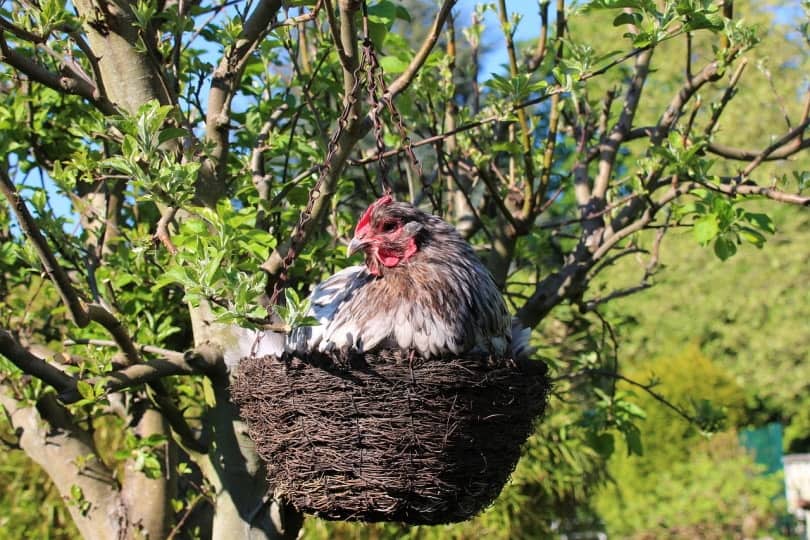If you’ve been raising chicken for some time, you must have come across some strange eggs occasionally. However, odd-looking eggs are not a significant concern most times, just a hitch in production.
One of the most common “hitches” you are more likely to experience in chicken farming is your fowls laying soft-shelled eggs. Such eggs may make you think that something could be wrong with your hen, which is not necessarily true, although you can do something about it to prevent future soft-shelled eggs.
Keep reading to discover what soft-shelled eggs are, what causes them, and what you can do at home to prevent them in the future.

What Is a Soft-Shelled Egg?
Softshell eggs, also known as rubber eggs, shell-less eggs, or partially shelled eggs, lack shells or have incredibly soft shells.
Most people want their eggs strong enough to withstand the hen’s weight or the transportation from the coop to the kitchen. However, these eggs often look and feel soft and rubbery like water balloons.
Unlike regular eggs with a hard shell covering the yolk, the white, rubber eggs are covered by a membrane or a fragile shell that you can see through the egg or quickly break if you press your finger into it.
If you’ve begun noticing thin-shelled eggs in your collection, the chances are that you missed the signs that lead you to this point.
You shouldn’t take this occurrence lightly, as soft-shell eggs could be distressing your hen big time. Ensure that you watch out for signs of distress a hen shows when she’s laying.
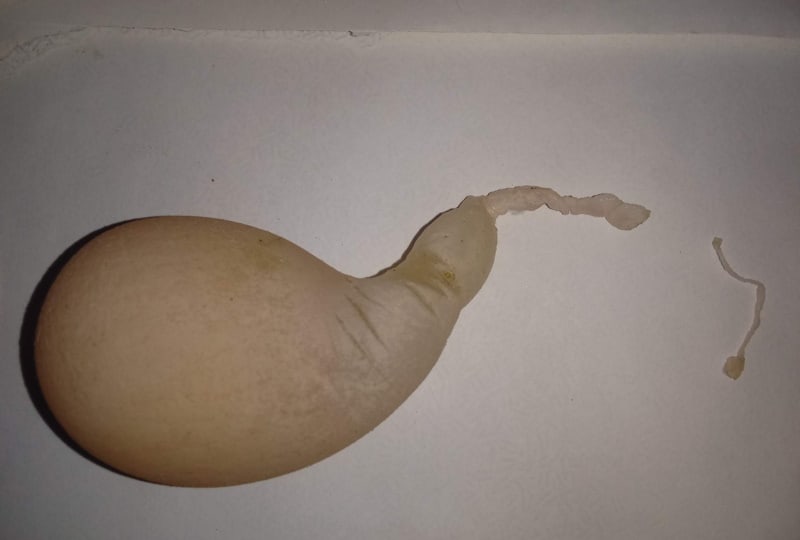

The 6 Reasons Why Chickens Lay Soft Eggs
1. The Chicken’s Age
Go ahead and look at your hens’ respective ages whenever you discover that your fowls are laying rubber eggs. Young layers, also known as pullets, are more likely to lay soft-shelled eggs during their initial laying stages.
You may discover later that thin-shelled eggs are not so common in older layers, which means that these eggs may stop once the younger hens fully develop and their reproductive systems mature.
These hens are new at laying and still discovering the kinks in egg-laying. Therefore, they need a grace period before you start expecting perfect eggs from them. So, until then, cut your pullets some slack because they may turn out to be your best layers eventually.
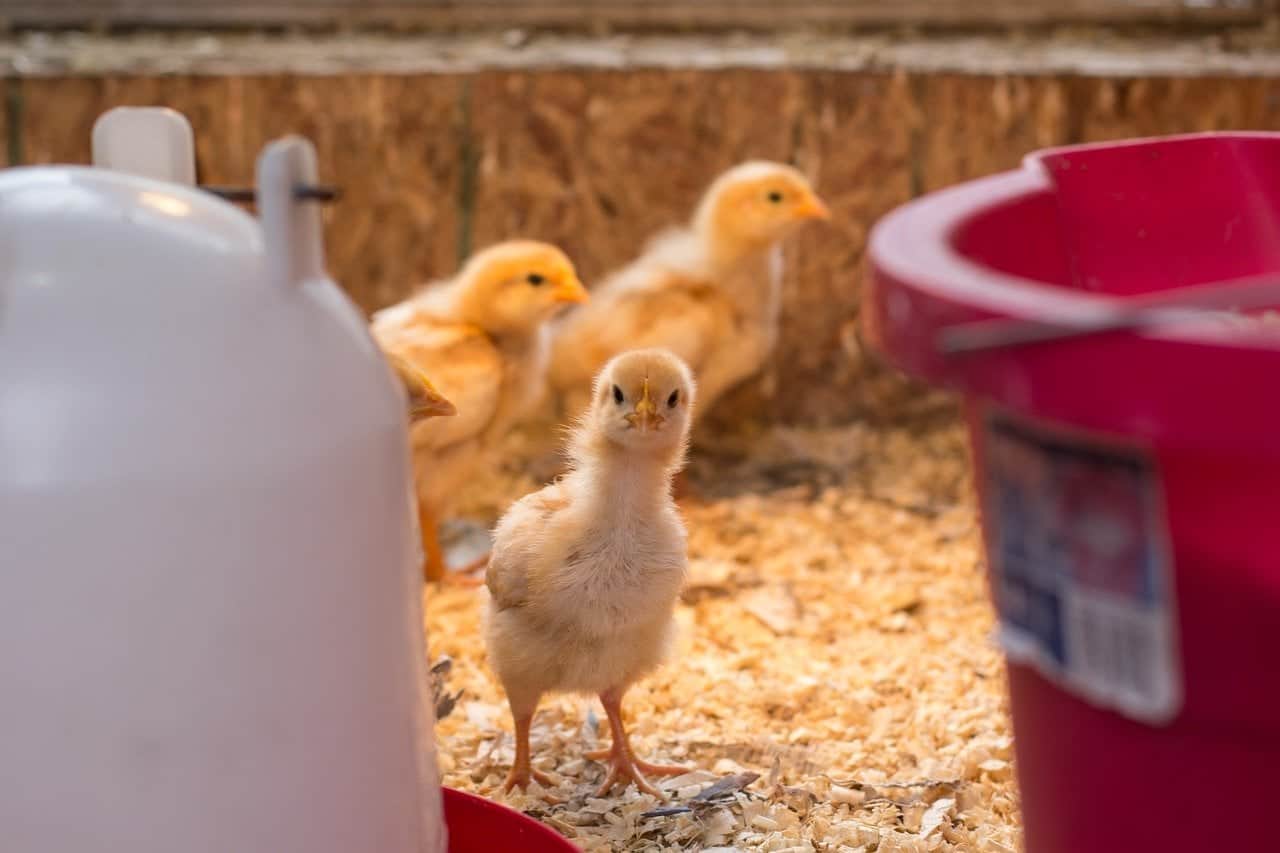
- You may also be interested in: How To Tell The Age Of A Chicken (With Pictures)
2. Calcium Deficiency
Age affects egg quality. If your hens are of age and lay regularly, but start laying soft-shelled eggs suddenly, check their calcium intake. Calcium deficiency is one of the most common causes of hens laying thin-shelled eggs.
Most layers have extra calcium in their bodies, but that may not be enough to sustain the laying process. Therefore, you should consider supplementing through feeds just to ensure they are getting enough calcium.
Soft eggs shouldn’t be your only concern if you don’t provide your hens with calcium-packed feeds, though. Unfortunately, if you don’t offer your hens calcium through meals, their bodies will start drawing the mineral from their bones.
Calcium is essential for bone development, so this may cause other health concerns that may shorten your fowl’s lifestyle. Plus, the hen requires calcium to help with the contractions that help her to lay eggs.
A hen finds it pretty difficult to lay such an egg as it lacks a hard shell to help it exit the vent quickly. Worse still, the egg can also get stuck within the hen’s vent, making it overstay in the nest box but fail to lay an egg.
3. Vitamin C & D Deficiency
Calcium and phosphorus are necessary for solid eggshells and bone formation. In addition, these minerals help increase the metabolic rate of carbohydrates and fats in every creature’s body, including chickens.
However, the two minerals can only function with sufficient vitamin D. Vitamin D increases the absorption rate of calcium, phosphorus, and magnesium in the chicken’s intestinal tract.
Lack of sufficient vitamin D causes rickets in young fowls, rubber eggs in laying hens, less eggshell physical strength, increased egg breakage, reduction in egg-laying, and a massive loss to farmers.
Vitamin C is equally vital during egg production in chickens as the birds naturally synthesize it in the kidneys. Vitamin C helps in tissue repair, and is also an anti-depressant. Vitamin C deficiency may increase your layers’ mortality rates, reduce egg production, cause fatigue in caged birds, and create thin and easily broken eggshells.
4. Stress
Other than your hen’s age, lack of calcium, and infection, stress can also cause poor-quality eggshells. Stress can include:
● Environmental Stress
Anything around the chickens can stress them out, including a small chicken run or an overcrowded coop. Excess chickens in a small coop can be a recipe for weak eggshells and diseases.
Ensure that your hens are comfortable when laying by providing them enough space and features that will keep them comfortable and active all throughout.
● Heat Stress
Check the temperature in the coop if you notice that your hen has started laying week eggshells. Heat can be brutal on layers, so much more than cold temperatures.
A chicken’s body can naturally withstand about 106 degrees Fahrenheit. But unfortunately, these birds cannot regulate excess temperatures like humans, which means they feel the heat a lot more than you do.
Although there isn’t much you can do about the weather; you can offer relief to your brood by providing enough water sources and a cool coop to rest in.
● Rooster Stress
Roosters play a vital role in fertilizing eggs but can also overwhelm your hens if they tend to over-mate. The only way to remove this stressor is by separating the roosters from the layers.
● Predator Stress
Predator stress can include bullying from other chickens, henpecking, or other animals like dogs and cats. Also, feeling insecure can cause stress leading to the formation of weak-shelled or oddly shaped eggs.
Stress interferes with egg development and formation, and to some extent, your hen may lay fewer eggs than usual or stop laying at all.
The best you can do is isolate your layers from the aggressive chickens and keep them in a safe enclosure away from other predators. You can also consider using beak bits to reduce henpecking.
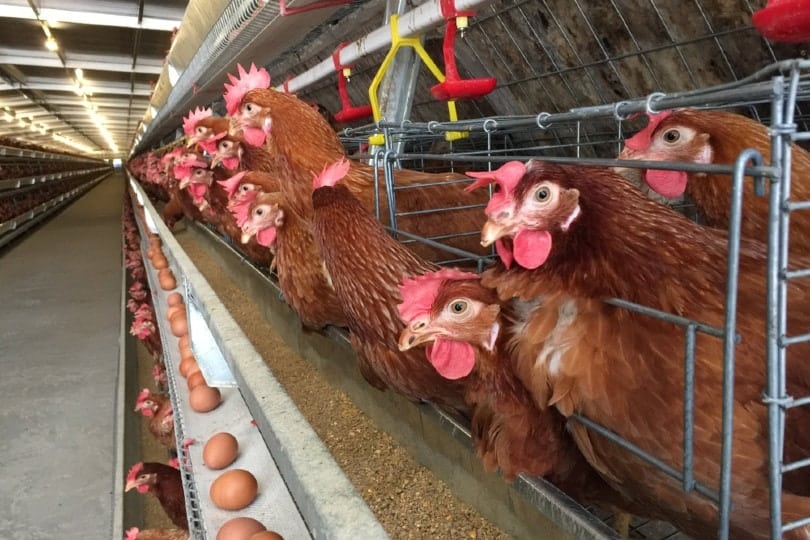
5. A Sign of Illness
Another possible cause of soft eggshells is if your chickens suffer from bumblefoot, a virus, or the Infectious Bronchitis Virus (IBV). You may start noticing your fowls going off feed, sneezing, a drop in egg-laying, swollen heads, weak eggshells, wrinkled eggshells, and shell-less eggs.
The color of the eggs can also change (white instead of brown) in extreme cases. Luckily, you can prevent IBV through several vaccinations during your hen’s growing period. Check with your vet for a proper diagnosis and treatment.
6. Soft Shell Eggs Can Just Happen Sometimes
A mature hen can produce a soft egg randomly even if it’s healthy, gets a calcium-rich diet, has no stressors, and stays in a warm nest. So it’s possible that the soft egg just happened, and there’s no logical explanation behind it.
Hens are living organisms, and sometimes something can go awry in their lives, just like humans. For example, maybe your hen’s body released the egg through the oviduct faster than expected. So, consider it a glitch in production if your healthy hen produces only one soft-shelled egg when the rest are okay.
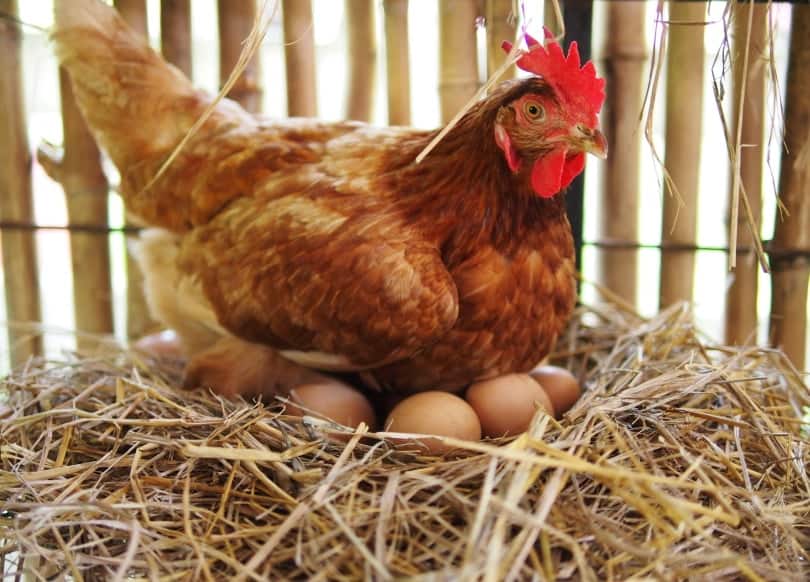

How Do You Prevent Soft-Shell Eggs?
Calcium Supplements
Each hen absorbs calcium differently, so you shouldn’t rely on the body’s production alone.
You can crush eggshells and oyster shells and offer them to your brood regularly, without mixing with the feeds so that each hen can get enough supplements.
Use Probiotics
Probiotics help improve eggshell quality, so you should include them in your chicken’s feed for thicker shells.
Avoid Excess Treats
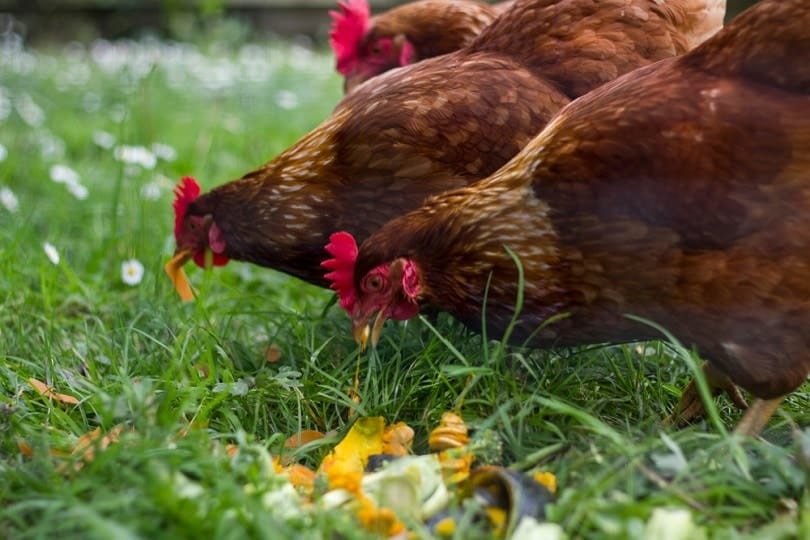
Treats like spinach, citrus, chards, and beet greens interfere with calcium absorption. Try to avoid such treats if weak eggshells are a problem.
Add Calcium-Rich Herbs and Greens
You can use herbs like alfalfa, dandelion greens, parsley, raspberry, and peppermints in place of spinach and beet greens. Such herbs are rich in calcium, and you can include them in your hens’ feeds.
Use Apple Cider Vinegar
One tablespoon of apple cider vinegar in every gallon of water can help improve your hen’s calcium absorption rates.
Use Liquid Calcium
You can only use this option for severe cases. You can add liquid calcium to your fowls’ drinking water to boost calcium intake.

Can You Eat Soft Shell Eggs?
A strong eggshell is vital as it helps keep pathogens like bacteria out of the egg. So, it’s possible that germs and bacteria can invade an egg with a weak shell, and you wouldn’t want to eat that.
You can instead offer it to pigs or throw it away.

Final Thoughts
You shouldn’t address soft shell eggs just because your hens are producing invaluable eggs. Instead, you should address them because a hen that produces weak eggshells could be going through something you can prevent, like illnesses and stress.
These are conditions you may want to address, so finding means to harden future eggshells is imperative!
Featured Image Credit by: Andy M, Pixabay
